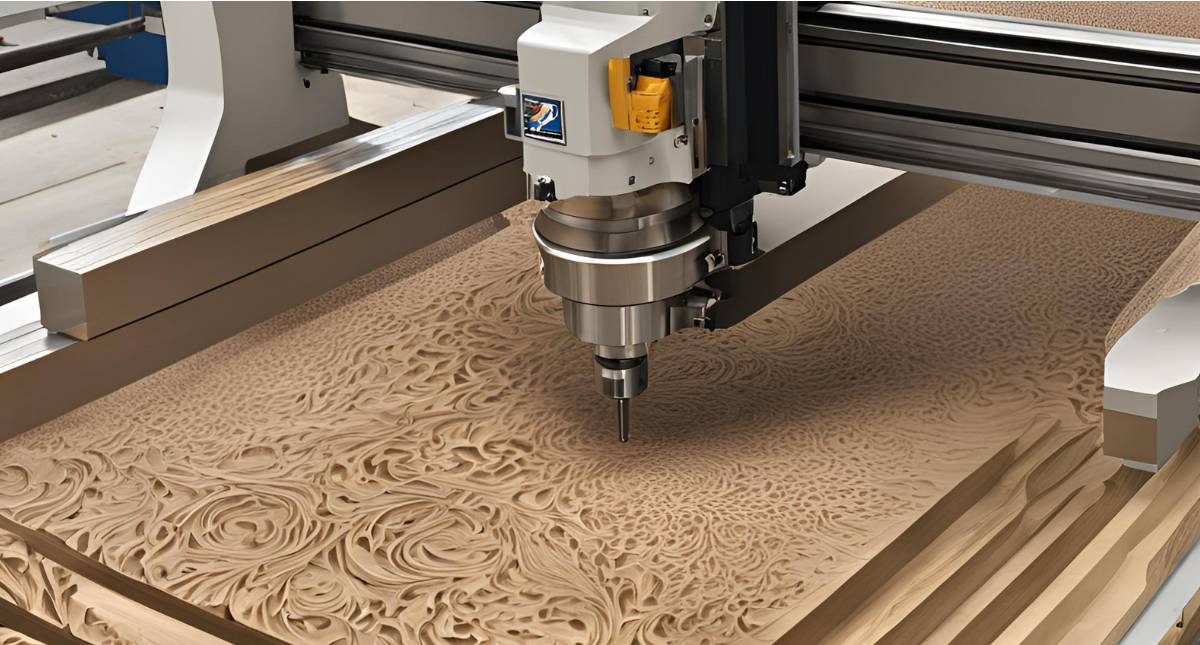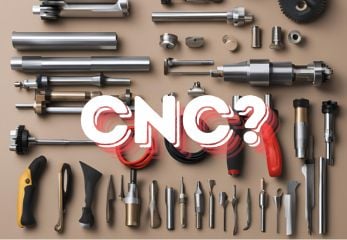


Are you considering investing in a CNC machine but not sure if it’s worth it? You’re not alone. Many individuals and businesses find themselves at the crossroads of deciding whether to take the leap into Computer Numerical Control (CNC). In this comprehensive guide, we will explore the factors that can help you make an informed decision.
From small workshops to large manufacturing plants, CNC machines have revolutionized various industries, providing greater precision, efficiency, and automation. But is it the right investment for you? Well, that depends on several key factors.
In this article, we’ll delve into the benefits of CNC machines, such as their ability to reduce labor costs, improve production speed, and maintain consistent quality. We’ll also explore the potential drawbacks, such as the initial investment costs, maintenance requirements, and the learning curve associated with operating these sophisticated machines.
By the end of this guide, you’ll have a clearer understanding of whether CNC is a worthwhile investment for your unique needs and goals. So let’s dive in and help you make an informed decision on whether CNC is right for you.
CNC, short for Computer Numerical Control, is a manufacturing process that utilizes specialized computer software and hardware to control the movement and operation of machine tools. These machines, such as mills, lathes, routers, and grinders, are programmed to perform a series of precise actions, enabling the production of complex parts and components with unparalleled accuracy and repeatability.
At the heart of a CNC system is the computer, which is responsible for interpreting the digital instructions, or G-code, and translating them into the specific movements and actions required to manufacture the desired product. This digital control allows for greater precision, faster production times, and the ability to create intricate designs that would be challenging or impossible to achieve through traditional manual machining methods.
CNC machines are commonly used across a wide range of industries, from aerospace and automotive to woodworking and medical device manufacturing. The versatility of these machines, coupled with their ability to handle complex geometries and tight tolerances, has made them an invaluable tool for businesses seeking to improve their manufacturing capabilities and stay competitive in today’s global market.
One of the primary advantages of CNC technology is its ability to improve productivity and efficiency. CNC machines can operate 24 hours a day, seven days a week, with minimal downtime, allowing for increased output and reduced labor costs. Additionally, the precision and repeatability of CNC machining ensure consistent quality, reducing the need for manual inspection and rework.
Another significant advantage of CNC technology is its flexibility. CNC machines can be programmed to produce a wide variety of parts and components, making them suitable for both small-batch and large-scale production. This flexibility allows businesses to respond quickly to changing market demands and customer requirements, enabling them to remain agile and competitive.
Furthermore, CNC technology can enhance the safety of the manufacturing process. By automating many of the tasks traditionally performed by human operators, CNC machines can reduce the risk of injury and exposure to hazardous materials or processes. This not only protects the well-being of the workforce but also helps businesses comply with strict safety regulations and avoid costly fines or legal issues.
One of the primary concerns when considering the adoption of CNC technology is the initial investment cost. CNC machines, along with the required software and supporting infrastructure, can represent a significant upfront expenditure for businesses, especially smaller operations or startups. However, it’s important to consider the long-term benefits and potential return on investment (ROI) when evaluating the cost of CNC implementation.
In addition to the initial purchase price of the CNC machine, businesses must also factor in the ongoing costs of maintenance, repairs, and consumables, such as cutting tools and lubricants. These operational expenses can vary depending on the complexity of the machine, the frequency of use, and the specific industry requirements. Proper maintenance and preventive measures can help minimize these costs and extend the lifespan of the CNC equipment.
Another important cost consideration is the training and education required for employees to effectively operate and maintain the CNC machines. Investing in comprehensive training programs can ensure that the workforce is equipped with the necessary skills and knowledge to maximize the efficiency and productivity of the CNC system. While this additional training cost may seem daunting, it can ultimately lead to improved performance, reduced errors, and greater overall cost savings.
When assessing the potential return on investment (ROI) of implementing CNC technology, it’s essential to consider both the direct and indirect benefits that these machines can provide. Direct benefits may include increased production speed, reduced labor costs, and improved quality control, all of which can have a measurable impact on the bottom line.
Indirect benefits, such as enhanced competitiveness, improved customer satisfaction, and the ability to take on more complex or specialized projects, can be more challenging to quantify but can still have a significant impact on the long-term success of a business. By carefully analyzing these factors, businesses can better understand the true value of CNC technology and make a more informed decision about whether it is a worthwhile investment.
To accurately evaluate the ROI of CNC, businesses should consider factors such as the expected increase in production output, the reduction in labor and material costs, the improvement in product quality, and the potential for new revenue streams or market opportunities. Additionally, businesses should factor in the ongoing maintenance and operating costs, as well as any necessary training or infrastructure investments required to support the CNC system.
When determining whether CNC technology is a worthwhile investment for your business, there are several key factors to consider:
By carefully weighing these factors, you can gain a comprehensive understanding of whether CNC technology is the right investment for your business, both in the short and long term.
Assessing the readiness of your business for CNC technology is a crucial step in the decision-making process. Here are some key considerations to help you determine if your business is prepared to take on the implementation of CNC machines:
By thoroughly evaluating these factors, you can determine if your business is ready to take the leap into CNC technology and make an informed decision that aligns with your long-term goals and objectives.
Despite the widespread adoption of CNC technology, there are still several common misconceptions that can deter businesses from considering its implementation. Understanding and addressing these misconceptions can help you make a more informed decision about whether CNC is the right investment for your business.
By addressing these common misconceptions, you can gain a more accurate understanding of the capabilities and potential benefits of CNC technology, empowering you to make a well-informed decision about its suitability for your business.
While CNC technology has become increasingly prevalent across various industries, there may be instances where alternative manufacturing methods or technologies are more suitable for specific business needs. Understanding these alternatives can help you make a more informed decision about the best approach for your particular industry or application.
By exploring these alternatives and understanding the specific needs of your industry, you can make a more informed decision about whether CNC technology is the most suitable investment for your business or if other manufacturing methods may be a better fit.
After carefully considering the various factors and weighing the potential benefits and drawbacks, it’s time to make the decision on whether CNC technology is a worthwhile investment for your business.
If your analysis has shown that CNC technology aligns with your production needs, financial resources, and long-term goals, then it may be a wise investment that can provide significant advantages. The increased precision, efficiency, and automation offered by CNC machines can lead to cost savings, improved product quality, and enhanced competitiveness in the market.
On the other hand, if the upfront and ongoing costs of CNC implementation outweigh the potential benefits, or if your business is not yet ready to accommodate the changes and challenges associated with this technology, it may be prudent to explore alternative manufacturing methods or wait until your business is better positioned to take advantage of CNC’s capabilities.
Remember, the decision to invest in CNC technology is not a one-size-fits-all solution. It requires a careful evaluation of your unique business needs, industry requirements, and long-term strategic objectives. By taking the time to thoroughly assess the factors discussed in this guide, you can make an informed decision that sets your business up for success.
Ultimately, the decision to invest in CNC technology is a complex one, but by understanding the basics, weighing the advantages and disadvantages, and evaluating your readiness, you can determine whether CNC is the right choice for your business. With the right approach, CNC can be a transformative investment that propels your business forward and helps you stay competitive in today’s rapidly evolving manufacturing landscape.



Feeling stuck on your next move?
📦 Start with a CNC BundleInstant downloads. Trusted files. Real results.